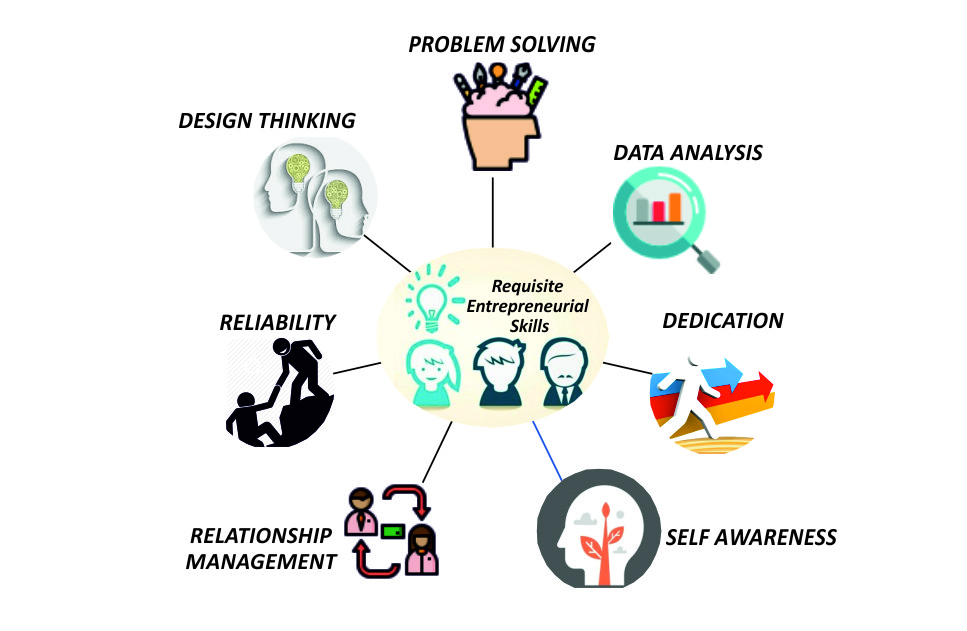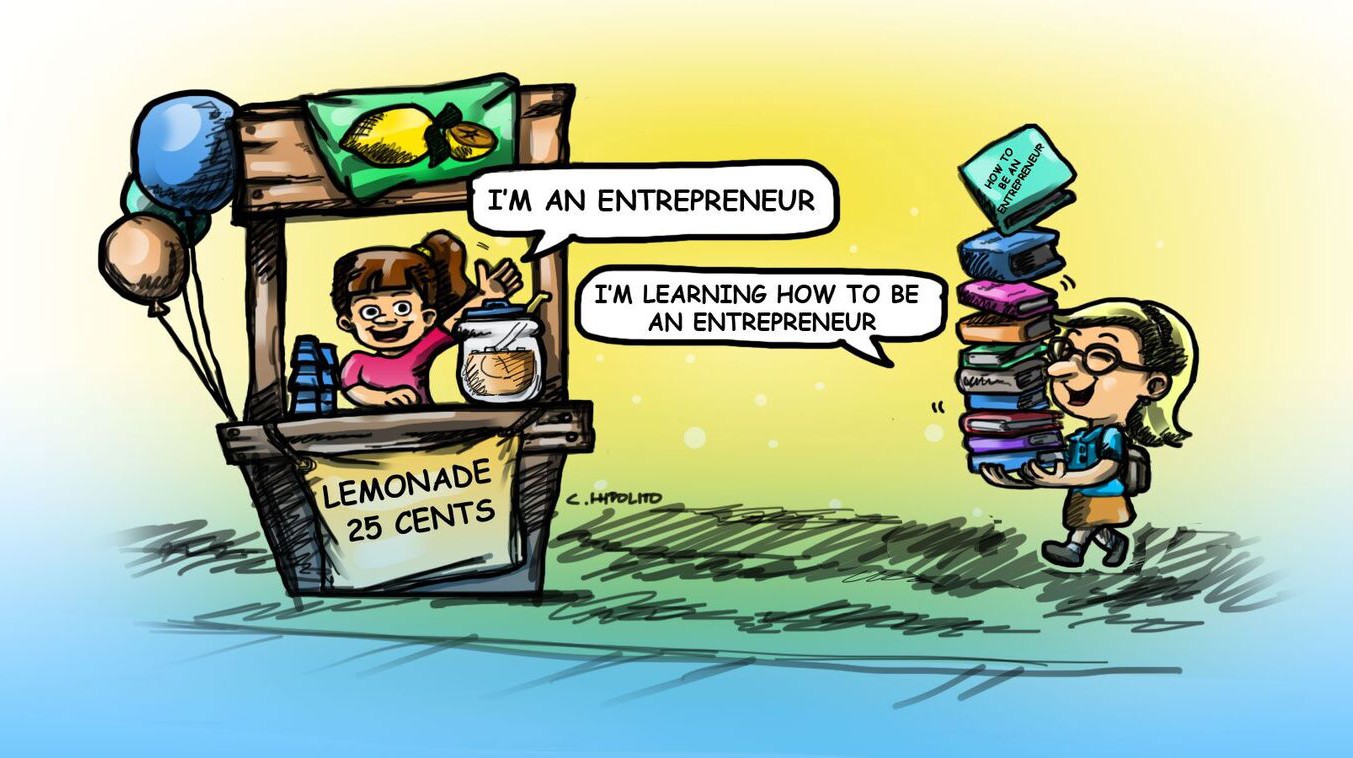
“It is Important for an entrepreneur to be adequately self-aware, To know what they do not know”
– Mark Zuckerberg
Now the question comes “What, Why and How’.
By what we mean– Having an idea. An idea can be about anything – a service you want to serve or a product you want to create. It can be altogether creation of something new or taking an existing one to further innovate. Having an idea can’t be taught. To generate an idea, one only needs motivation.
Now comes Why– So, along with motivation, one needs to determine why he/she wants to innovate, one needs to identify the motive or purpose behind the idea and only then one will be able to innovate creatively and efficiently.
And lastly, How– Now comes the acting or implementation on the idea stage. By how we mean, how to proceed after one has the idea. How plays a vital part while creating an entrepreneur.
The entrepreneurial journey can start in high school. High school students are at a stage where they can have an idea and will just need the support and knowledge in the path to implementation. Here comes the entrepreneurial education in the scene. Entrepreneurship is not something that can be taught along with regular classroom studies. It is taught outside the class, in the practical world. Learning from the practical world means developing the skills of an entrepreneur according to the needs of the world. Entrepreneurial mentors play a very major role in shaping up the entrepreneurial mindset among the students. Now, when we talk about entrepreneurial mentors, a key part of their job is to ensure students set out on their own paths, prepared to pursue their passions, actualize their dreams, and thrive in their academic and professional experiences. These skills include having a strong sense of self-identity, self-awareness and self-efficacy; thinking independently, interactively, and innovatively; enjoying and excelling at complex and creative problem solving; identifying and evaluating data; working well with collaborators and stakeholders across a range of sectors; and acting honestly, responsibly, and perceptively. And for us, as individuals we must take more creative risks as we “fail forward” and empower ourselves, to satiate our intellectual curiosity by never feeling too afraid or embarrassed to “think different”. To do this, we must trust ourselves – to lead adaptively and to think creatively.

36Inc believes that entrepreneurship education should be made an integral part of school education. 36Inc is working towards the development of the start-up ecosystem across the CG state. To enhance the student entrepreneurship culture, 36Inc has done MoU’s with the premier colleges in the state like IIT, IIM, IIIT, NIT, GEC and so on. To promote the belief of start-up culture among young innovative minds, it keeps on organizing regular workshops and events on entrepreneurship for the high school and college students at the 36Inc co-working space. 36Inc also sponsors colleges for promoting entrepreneurial programs organized by the college themselves. The process of creating entrepreneurs cannot be left until the potential entrepreneur starts college. The objective is not to make all students entrepreneurs but to identify the ones with an entrepreneurial aptitude and provide opportunities for those students to develop their entrepreneurial skills in a structured manner. There are no well-established ways to do that.

It is very clear that we need many more entrepreneurs than we are currently producing. High economic growth can only be sustained with a steady flow of new ventures.
